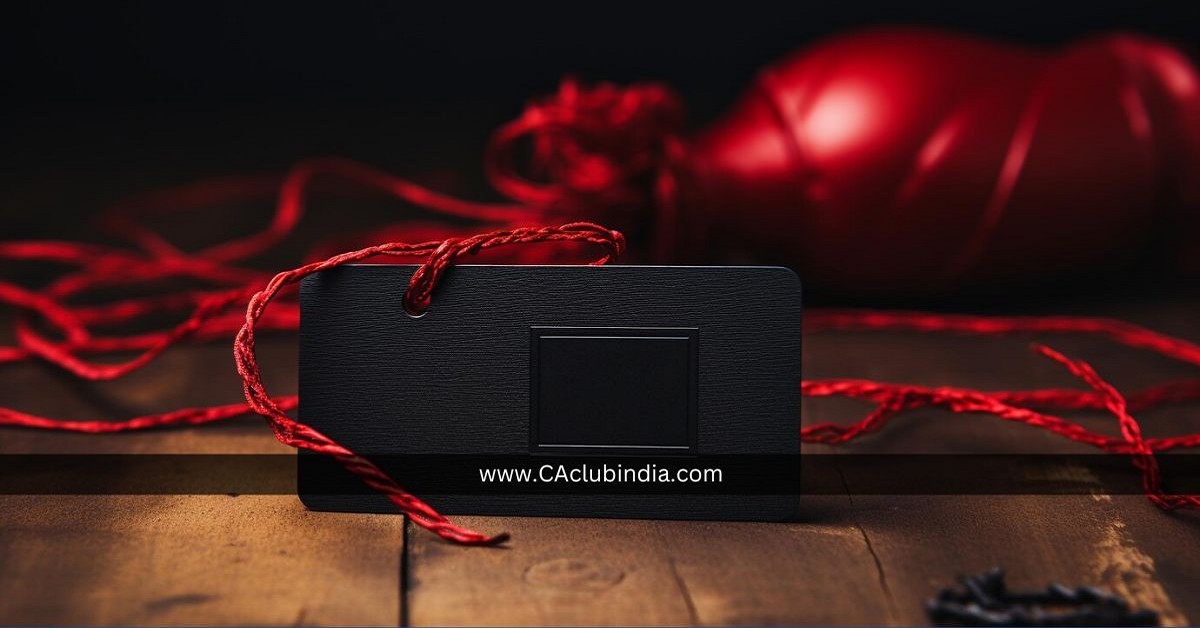Hello, GST enthusiasts! If you've ever found yourself scratching your head about the GST rules for vouchers, you're not alone. The GST Policy Wing has come to the rescue with a new circular that finally clears the air about the GST treatment of vouchers. And guess what? We're going to break it down for you with a bit of humor to keep things interesting!

The Big Picture: What's Going On with Vouchers and GST?
You know those gift cards, e-vouchers, or discount coupons you get and wonder, "Bhai, is this GST applicable on this or not?" Well, turns out the government has been getting the same questions. They've realized that field formations (the tax authorities) were giving different answers, creating confusion and litigation. The result? A big mess!
But don't worry, we've got the solution. This new circular from the GST Policy Wing is here to clear the confusion!
So, let's break it down!
Issue 1: Are Vouchers a Supply of Goods or Services?
In Simple Words:
Is a voucher considered a product or service for GST purposes? The answer is neither. Yes, you read that right. Vouchers are just payment instruments that create an obligation on the supplier to accept them as consideration (either partial or full) for goods or services. For example, you get a voucher for pizza, but the voucher itself isn't the pizza - it's just a promise that you can use it to get your meal.
Example:
"Yaar, voucher toh bas ek paisa ka promise hai, jaise tu apni dosti ke promise pe pizza mang le. Lekin uska apna GST nahi!"(Vouchers are just a promise of money, like how you can order pizza based on a promise of friendship, but it doesn't have GST itself!)
When Is GST Not Applicable on Vouchers? 🤷♀️
When it's a Pre-paid Instrument (PPI):If the voucher is recognized by the Reserve Bank of India (RBI) as a pre-paid instrument (like a wallet balance or gift card), it falls under the definition of money and therefore does not attract GST.
When it's Not a Pre-paid Instrument:If the voucher isn't RBI-approved and is just creating an obligation for goods or services, it could be classified as an actionable claim (think of it like a promise note). And again, actionable claims are not taxable under GST.
Example:
"Arre bhai, agar woh voucher RBI se certified wallet hai, toh wo money ban gaya, koi GST nahi! Agar nahi hai, toh actionable claim ka drama hai, GST toh bilkul bhi nahi."(If the voucher is an RBI-certified wallet, it becomes money and no GST. If not, it's just an actionable claim - no GST drama either!)
Issue 2: How Does GST Apply to Distributors and Agents Selling Vouchers?
1. The Principal-to-Principal (P2P) Model:
If a distributor buys vouchers at a discounted rate and sells them at a margin to others (sub-distributors, corporates, or customers), this is a pure trading activity. No GST on the sale of the voucher itself because it's neither a supply of goods nor services.
Example:
"Jab P2P ka business chal raha ho, voucher bechne ka toh GST nahi! Aapne ₹100 ka voucher kharida ₹80 mein aur ₹120 mein bech diya, magar GST? Nahi boss, bilkul nahi!"(When it's a P2P business, no GST on selling the voucher. You bought the voucher for ₹80 and sold it for ₹120, but GST? Nope, nada!)
2. The Principal-Agent (Commission-Based) Model:
If distributors or agents are working on commission (like a middleman), GST is applicable on the commission or fee they earn for facilitating the voucher distribution. Here, they're not owning the voucher but simply helping the issuer sell it.
Example:
"Bhai, agar tu agent hai toh commission ka GST dena padega! Tu toh bas middleman hai, voucher ka malik toh issuer hai!"(If you're an agent, you gotta pay GST on the commission! You're just the middleman, the voucher owner is the issuer!)
Issue 3: What About Extra Services Like Marketing or Customer Support?
If there are additional services like advertising, customization, or customer support for distributing vouchers, these services are taxable under GST at the applicable rates. So, if you're getting paid for marketing that voucher, be ready to hand over some GST!
Example:
"Agar marketing ka kaam kar rahe ho, toh GST ka bill bhi tayyar rakhna, chhupana mat!"(If you're doing marketing, keep your GST bill ready, don't hide it!)
Issue 4: What Happens to Unredeemed Vouchers (Breakage)?
Let's say people don't redeem their vouchers. This is called breakage - and guess what? No GST on unredeemed vouchers! Since no goods or services are being supplied for those unused vouchers, the issuer can't charge GST. So, that value from unredeemed vouchers is not taxable under GST.
Example:
"Yeh jo unused voucher ka paisa hai, wo GST-free hai boss! Agar tumne voucher use nahi kiya, toh **issuer ka paisa bacha, GST ka chakkar nahi!"(That unredeemed voucher value is GST-free! If you didn't use the voucher, the issuer saved money, and there's no GST circus involved!)
In Conclusion:
Vouchers are complicated but not when you break them down like this. Whether it's pre-paid instruments (RBI-approved), trading of vouchers, commissions on distribution, or unredeemed vouchers (breakage) - the GST rules are clear, and you don't have to worry about unnecessary tax headaches anymore.
So, next time you hand over that gift card to a friend or redeem a voucher for a slice of pizza 🍕, you'll know exactly what's going on with the GST!
Circular has been attached herewith









 CAclubindia
CAclubindia
